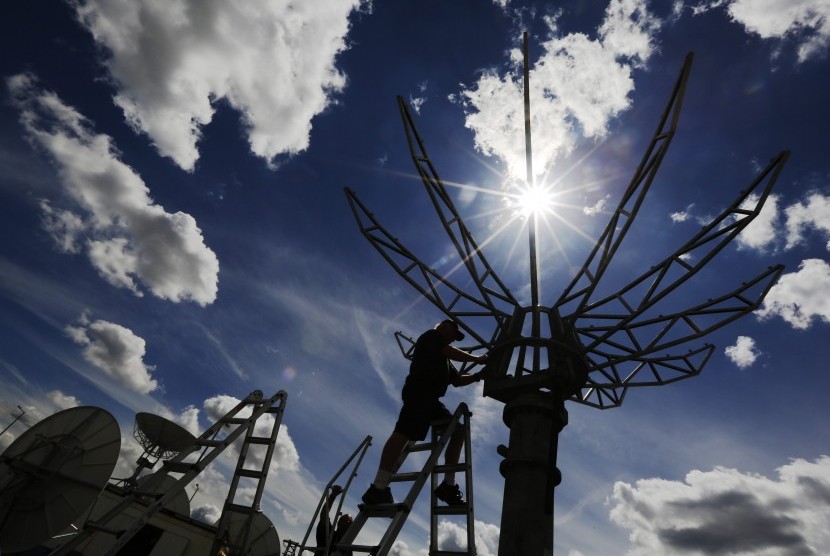REPUBLIKA.CO.ID, JAKARTA - Indonesian telecommunication services company Telkom has acknowledged that the Briz-M booster failed during the launch of Telkom-3 satellite from Baikonur Cosmodrome, Kazakhstan, on Monday (August 6, 2012) at 7.31 pm Russian time.
"We have received information about the failure of Telkom-3 satellite launch, which was caused by the malfunction of the Briz-M rocket booster," said Slamet Riyadi, the company`s Head of Corporate Communication Affairs, here on Tuesday.
However, Slamet declined to go into details about loss of Telkom-3 satellite, saying that the company was awaiting official confirmation from ISS-Reshetnev the team that built the satellite. According to NASAspaceflight.com, the Telkom-3 satellite which was launched along with Russian’s Express-MD2 satellite, atop a Proton-M rocket was reported to be lost several hours before reaching the destination orbit due to a failure of the upper stage of the launch.
Meanwhile, Russian space agency Roscosmos said in a press release that the agency was still uncertain about the location of both satellites. He said a number Telkom directors witnessed the satellite launch that required an investment of 200 million USD.
Burns only for seven minutes
The error happened after takeoff from the Russian-leased Baikonur launch pad in Kazakhstan late on Monday. The total loss of the two satellites was estimated at 100-150 million USD, a space industry source told Interfax news agency.
Moscow, which carries out 40 percent of global space launches, is struggling to restore confidence in its industry after a string of mishaps last year, including the failure of a mission to return samples from the Martian moon Phobos and the loss of a 265-million USD communications satellite.
Space agency Roskosmos said in a statement the Briz-M booster had fired its engines on schedule but they had burned for only seven of the programmed 18 minutes and 5 seconds needed to push the satellites into orbit.
"The chances that the satellites will separate from the booster and reach the designated orbit are practically non-existent," an industry source told RIA Novosty.
Proton rocket launches will likely be suspended pending analysis of the failure, the Russian industry source said. "The last failures to a certain extent undermine Russia's position as a country that provides space launch services," said industry expert Yuri Karash, a member of the Russian Academy of Cosmonautics.
Such mistakes strengthen Russia's competitors, such as Europe's Arian rockets, Karash said, describing Russia's space industry, struggling to recover after a generation of brain drain and crimped budgets, as "not in the best condition by a long shot."
He added, however, that problems with the Briz-M upper stage did not necessarily throw into doubt the reliability of the Proton booster as a whole. Telkom-3, the first satellite Jakarta had purchased from Moscow, was built by Russia's ISS-Reshetnev with communication equipment made by French-led satellite maker Thales Alenia Space.
Telkom-3 had a capacity of 42 active transponders to cater to the growing demand of Indonesia's satellite business service. Express MD2 was a small communication satellite, made by the Khrunichev State Research and Production Space Centre, for the Russian Satellite Communications Company (RSCC).


